Valzaar 80
An angiotensin receptor II antagonist, such as Valzaar 80, is a type of antihypertensive medication used to treat hypertension (high blood pressure). In addition to treating heart failure, Valzaar 80 is also used to prevent heart attacks. Blood putting higher pressure on the walls of blood vessels leads to hypertension. Heart failure occurs when the heart cannot pump enough blood to the rest of the body. Blood flow obstruction to the heart muscle results in a heart attack or stroke.
Valzaar 80 contains the active component valsartan, which inhibits the function of angiotensin II receptors, which constrict blood vessels and elevate blood pressure. By inhibiting angiotensin II receptors, Valzaar 80 relaxes and dilates blood vessels, making it easier for the heart to pump blood to all body organs. Thus, it contributes to the normalization of blood pressure.
Valzaar 80 mg may be used with or without food. Valzaar 80 should be swallowed whole with a glass of water; it should not be crushed, broken, or chewed. Depending on your medical condition, you should take Valzaar 80 for the duration of time suggested by your doctor. In some instances, common adverse effects such as vertigo, headache, abdominal pain, fatigue, diarrhea, nausea, and vomiting may develop. The majority of these side effects do not require medical intervention and will subside with time. However, if you have these side effects frequently, you should visit your physician.
It is advisable not to stop taking it on your own, as doing so can lead to an increase in blood pressure. Do not take Valzaar 80 if you are pregnant, as it may harm the fetus. Before using Valzaar 80 if you’re breastfeeding, consult your physician. Children under the age of six should not use Valzaar 80 because its efficacy and safety have not been established. Valzaar 80 can make you dizzy, so drive carefully. Because it can cause dizziness, alcohol should be avoided. Inform your doctor of all the medications you’re taking and your current state of health in order to rule out any adverse effects.
Valzaar 80 is utilized for the treatment of hypertension (high blood pressure), heart failure, and prevention of heart attacks.
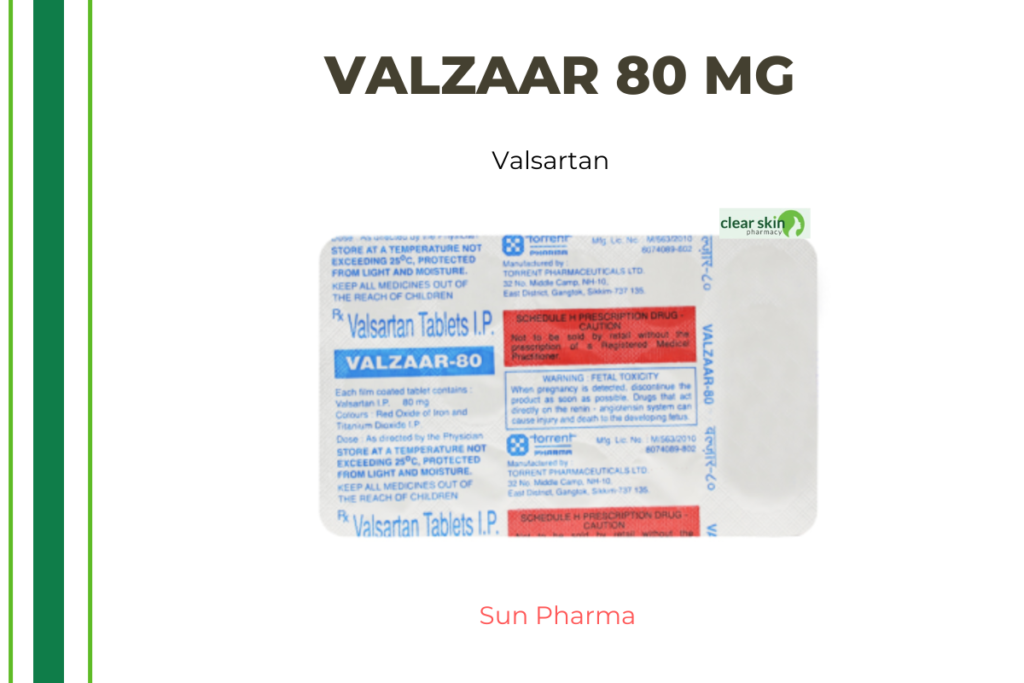
Medicinal Advantages
Valzaar 80 belongs to the class of hypertension medicines known as angiotensin receptor II antagonists. Valzaar 80 is a prescription drug used to treat hypertension (high blood pressure), heart failure, and to minimize the risk of mortality following a heart attack. Valzaar 80 inhibits the function of angiotensin II receptors, which constrict blood vessels and increase blood pressure. By inhibiting angiotensin II receptors, Valzaar 80 relaxes and dilates blood vessels, making it easier for the heart to pump blood to all body organs. Thus, it contributes to the normalization of blood pressure. Myocardial infarctions (heart attacks) and strokes, which are both fatal and non-fatal cardiovascular events, are less likely with Valzaar 80. Valzaar 80 significantly lowers hospitalizations for heart failure. After a myocardial infarction, Valzaar 80 reduces cardiovascular mortality (heart attack).
Use Instructions
Valzaar 80 mg may be used with or without food. Valzaar 80 should be swallowed whole with a glass of water; it should not be crushed, broken, or chewed. Your physician will determine how long you must take Valzaar 80 based on your medical condition.
Storage
Place in a cool, dry area out of direct sunlight.
Valzaar 80 Side Effects
Dizziness
Nausea
Vomiting
Headache
Pain in the abdomen
Fatigue
Diarrhea
Drug Recommendations
Do not take Valsartan if you are allergic to any of its constituents, if you have severe liver disease, diabetes, or impaired kidney function, or if you are taking aliskiren. Before using Valsartan, inform your doctor if you have severe cardiac disease, aldosteronism, dehydration, liver or kidney disease, are taking potassium-containing medications, or have had a kidney transplant or dialysis. Avoid using Valsartan if you are pregnant, as it can harm the fetus. Consult your physician before to using Valsartan if you are breastfeeding. Children under the age of six should not use valsartan because its efficacy and safety have not been shown. Valsartan might cause dizziness, so drive with caution. Because it can cause dizziness, alcohol should be avoided. Valsartan may produce vertigo, so rise slowly from a lying or sitting position (orthostatic hypotension).
Interactions Between Drugs
Antipsychotic (lithium), antibiotic (rifampin), immunosuppressant (cyclosporine), anti-HIV (ritonavir), antihypertensive (aliskiren, enalapril, captopril, lisinopril, ramipril), blood thinner (heparin), aldosterone receptor antagonist (spironolactone), diuretics, and potassium supplements have the potential to interact with valsartan
Drug-Food Interactions: Alcohol consumption should be avoided because it can cause dizziness.
Valsartan may interact with diabetes, angioedema, low blood pressure, congestive heart failure, hyperkalemia (high potassium levels), and kidney and liver dysfunction.
Safety Suggestions
ALCOHOL
Alcohol should not be used while taking Valsartan, as it may cause dizziness.
PREGNANCY
Valsartan is a pregnancy category D medication. If you are pregnant or suspect you may be pregnant, you should not use Valsartan, as it can harm the developing fetus.
BREAST FEEDING
It does not appear that valsartan enters breast milk. Consult your physician if you are breastfeeding; your physician will assess if Valsartan is safe for you to use.
DRIVING
Valsartan may cause dizziness; if you feel dizzy, do not drive or operate heavy machinery.
LIVER
It is conceivable that you will require a dosage adjustment. Patients with liver disease or injury should be provided valsartan with caution. Visit your doctor if you have any questions or concerns about this.
KIDNEY
It is conceivable that you will require a dosage adjustment. Valsartan should be administered with caution to patients with renal illness or impairment. Please consult your doctor if you have any concerns about this or if you have kidney problems.
No habit formation
Advice on Diet and Lifestyle
While taking Valsartan, it is advised to have a low-sodium, low-fat diet.
Regular exercise should be used with valsartan therapy.
Eat a diet rich in whole grains, vegetables, and fruits.
Avoid tobacco use and alcohol consumption.
Maintain a healthy weight through proper nutrition and regular exercise.
Meditation, yoga, and massage are stress management strategies that can also be used to treat hypertension.
Avoid potassium-rich foods include bananas, broccoli, almonds, avocados, and potassium supplements.
Recommendations
Regular monitoring of blood pressure, renal function, and electrolyte levels is recommended while using Valsartan.
Valsartan may cause an increase in potassium levels. Consult your physician or pharmacist before taking potassium supplements or potassium-containing salt substitutes.
Other details: This item is non-refundable.
Glossary of Diseases and Conditions
Blood exerts a greater force on the walls of blood arteries, resulting in hypertension. To quantify hypertension, the systolic and diastolic blood pressures are utilized. Systolic pressure is the pressure in the arteries while the heart beats or pumps blood. Diastolic pressure refers to the pressure in the arteries between heartbeats. The blood pressure monitor is calibrated in millimeters of mercury (mmHg) (sphygmomanometer). The ideal blood pressure is 120/80 mmHg. Hypertension is characterized by headaches, dizziness, nosebleeds, vision anomalies, chest pain, weakness, and dyspnea (shortness of breath). In the vast majority of cases, however, there are no signs or symptoms of hypertension.
Heart failure is the inability of the heart to pump enough blood to the body’s other organs. Symptoms include fatigue, shortness of breath, a racing heart, and swollen legs.
Myocardial infarction, often known as a heart attack or a stroke, happens when the blood flow to the heart muscle is interrupted. The accumulation of fat and cholesterol in the coronary artery is the most frequent cause of occlusion. Symptoms include pain or tightness in the chest, neck, arms, or back, weakness, dizziness, anxiety, and an irregular heartbeat.
FAQs
Valsartan inhibits the function of angiotensin II receptors, which constrict blood vessels and increase blood pressure. By blocking the impact of angiotensin II receptors, valsartan relaxes and dilates blood vessels, making it easier for the heart to pump blood throughout the body. Thus, it contributes to the normalization of blood pressure.
Please do not stop taking Valsartan without first consulting your doctor, as doing so could elevate your blood pressure. Take Valsartan as prescribed by your physician for as long as it is necessary. If you experience any issues while taking Valsartan, do not hesitate to contact your doctor.
As a side effect, valsartan may produce orthostatic hypotension. Orthostatic hypotension, a sudden drop in blood pressure, is the cause of dizziness while standing. If this occurs, do not immediately attempt to stand or walk; instead, lie down and slowly rise when you feel better. Users of Valsartan are advised to regularly monitor their blood pressure to avoid such unpleasant occurrences.
The heart and arteries are placed under greater stress by hypertension. Untreated, it could damage the blood vessels in the heart, brain, and kidneys, leading to a stroke, heart failure, or renal failure. High blood pressure increases the probability of heart attacks. Therefore, anti-hypertensives such as Valsartan are used to restore normal blood pressure, thereby reducing the risk of certain diseases.
When Valsartan is used with nonsteroidal anti-inflammatory medicines (NSAIDs), the risk of renal impairment and antihypertensive inefficacy increases.
Before taking potassium supplements, potassium-sparing diuretics, or salt substitutes with Valsartan, discuss the potential for an increase in serum potassium and serum creatinine levels with your doctor.

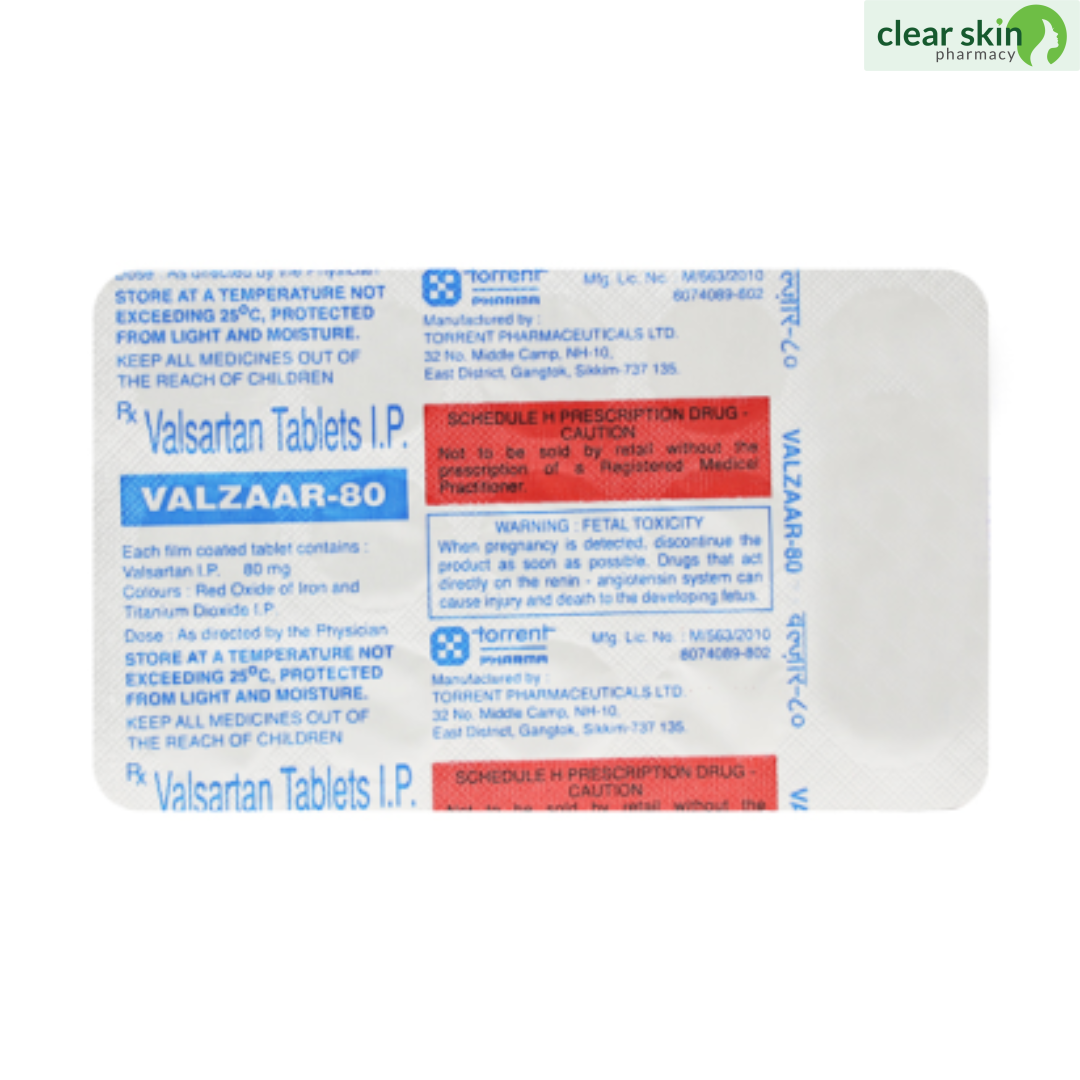
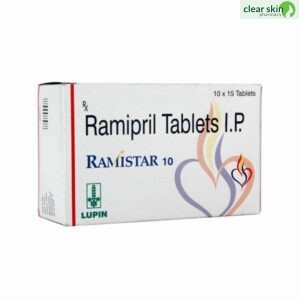

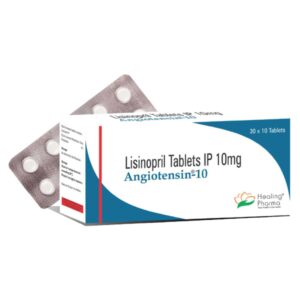


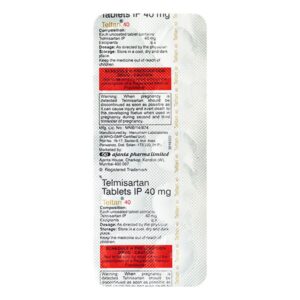
Be the first to review “VALZAAR 80MG 15 Tablets”